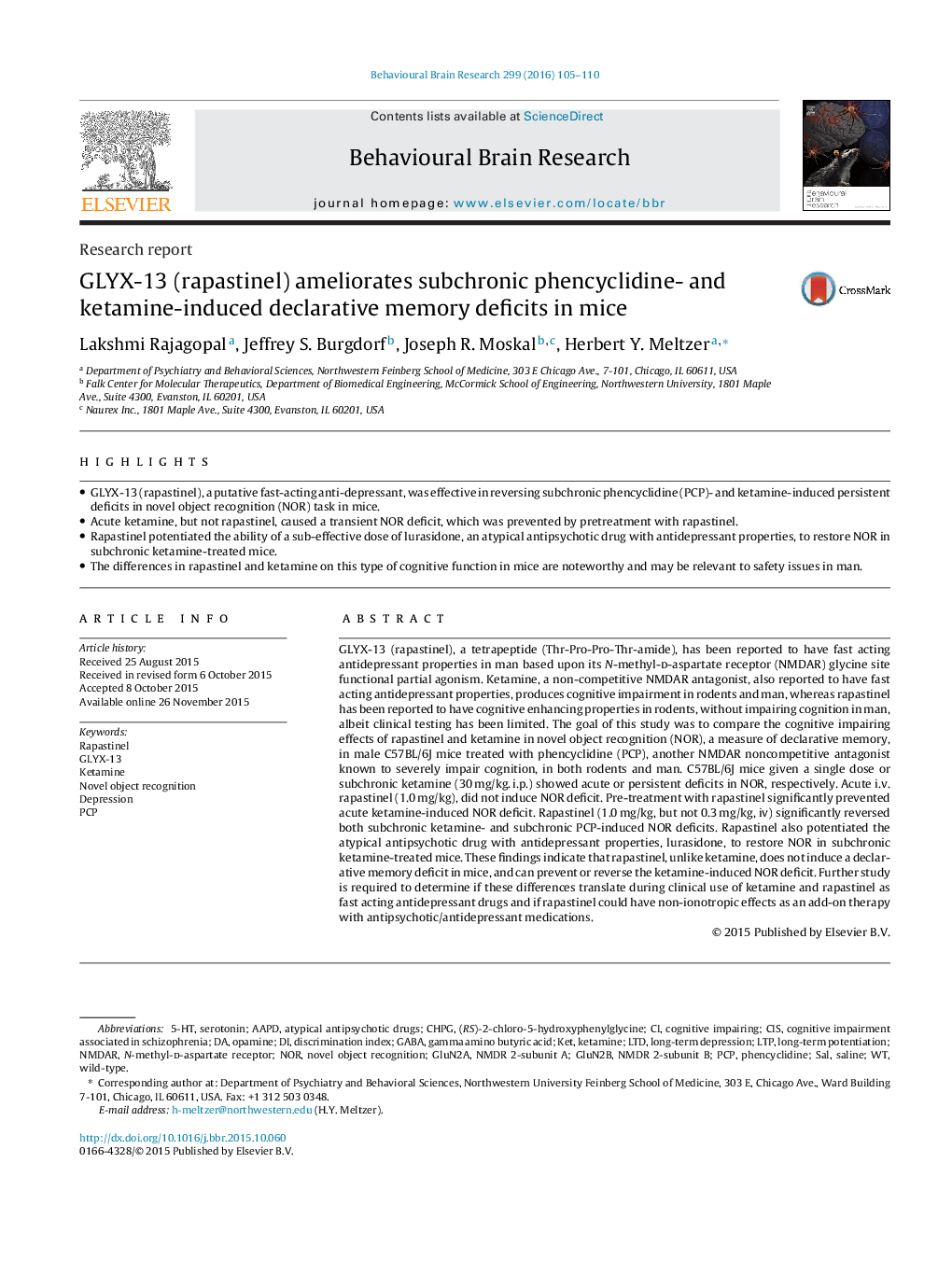| کد مقاله | کد نشریه | سال انتشار | مقاله انگلیسی | نسخه تمام متن |
|---|---|---|---|---|
| 6256234 | 1612934 | 2016 | 6 صفحه PDF | دانلود رایگان |

- GLYX-13 (rapastinel), a putative fast-acting anti-depressant, was effective in reversing subchronic phencyclidine (PCP)- and ketamine-induced persistent deficits in novel object recognition (NOR) task in mice.
- Acute ketamine, but not rapastinel, caused a transient NOR deficit, which was prevented by pretreatment with rapastinel.
- Rapastinel potentiated the ability of a sub-effective dose of lurasidone, an atypical antipsychotic drug with antidepressant properties, to restore NOR in subchronic ketamine-treated mice.
- The differences in rapastinel and ketamine on this type of cognitive function in mice are noteworthy and may be relevant to safety issues in man.
GLYX-13 (rapastinel), a tetrapeptide (Thr-Pro-Pro-Thr-amide), has been reported to have fast acting antidepressant properties in man based upon its N-methyl-d-aspartate receptor (NMDAR) glycine site functional partial agonism. Ketamine, a non-competitive NMDAR antagonist, also reported to have fast acting antidepressant properties, produces cognitive impairment in rodents and man, whereas rapastinel has been reported to have cognitive enhancing properties in rodents, without impairing cognition in man, albeit clinical testing has been limited. The goal of this study was to compare the cognitive impairing effects of rapastinel and ketamine in novel object recognition (NOR), a measure of declarative memory, in male C57BL/6J mice treated with phencyclidine (PCP), another NMDAR noncompetitive antagonist known to severely impair cognition, in both rodents and man. C57BL/6J mice given a single dose or subchronic ketamine (30 mg/kg. i.p.) showed acute or persistent deficits in NOR, respectively. Acute i.v. rapastinel (1.0 mg/kg), did not induce NOR deficit. Pre-treatment with rapastinel significantly prevented acute ketamine-induced NOR deficit. Rapastinel (1.0 mg/kg, but not 0.3 mg/kg, iv) significantly reversed both subchronic ketamine- and subchronic PCP-induced NOR deficits. Rapastinel also potentiated the atypical antipsychotic drug with antidepressant properties, lurasidone, to restore NOR in subchronic ketamine-treated mice. These findings indicate that rapastinel, unlike ketamine, does not induce a declarative memory deficit in mice, and can prevent or reverse the ketamine-induced NOR deficit. Further study is required to determine if these differences translate during clinical use of ketamine and rapastinel as fast acting antidepressant drugs and if rapastinel could have non-ionotropic effects as an add-on therapy with antipsychotic/antidepressant medications.
Journal: Behavioural Brain Research - Volume 299, 15 February 2016, Pages 105-110